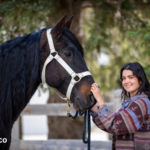Eid is a time of celebration, reflection, and togetherness for Muslims around the world. It is a time when families and communities come together to break their fast, offer prayers, and exchange warm wishes. One of the most cherished Eid greetings is Minal Aidin Wal Faizin, often said during this festive season. In this article, we’ll delve deep into the history, cultural significance, and the true meaning of Minal Aidin Wal Faizin Artinya.
The Origin of Minal Aidin Wal Faizin
Minal Aidin Wal Faizin is an Arabic phrase with deep roots in Islamic tradition. It is derived from the Quran and Sunnah (the teachings and practices of the Prophet Muhammad, peace be upon him). This greeting is exchanged by Muslims to convey their warmest wishes and blessings during the Eid holidays, which mark the end of Ramadan, the holy month of fasting.
Linguistic and Cultural Interpretation
Minal Aidin
The phrase begins with Minal Aidin, which can be roughly translated to from the returnees. It is a way of expressing gratitude to Allah for allowing individuals to witness and celebrate another Eid.
Wal Faizin
The second part, Wal Faizin, translates to and the successful ones. It is a recognition of the perseverance and success achieved during Ramadan, where Muslims engage in self-discipline, prayer, and reflection.
Artinya
In English, Minal Aidin Wal Faizin Artinya can be translated as Meaning of Minal Aidin Wal Faizin. This reflects a desire to understand the deeper significance of this beautiful greeting and the sentiments it carries.
Historical Significance of the Greeting
To truly appreciate Minal Aidin Wal Faizin, it’s essential to explore its historical roots. This greeting has been used by Muslims for centuries to mark the end of Ramadan and the beginning of Eid. Its usage signifies a sense of unity and shared faith among the Muslim community worldwide.
The Global Reach of Minal Aidin Wal Faizin
One of the remarkable aspects of Minal Aidin Wal Faizin is its global reach. It is not limited to any particular region or culture within the Muslim world. Instead, it is a universal greeting that transcends borders, languages, and ethnicities.
In Indonesia, for example, where the phrase “Minal Aidin Wal Faizin” originates, it is commonly used during Eid celebrations. Indonesians take great pride in their diverse and vibrant culture, and this greeting reflects their deep-rooted Islamic traditions. However, the phrase has also gained popularity in other countries with significant Muslim populations, such as Malaysia, Singapore, and parts of the Middle East.
Furthermore, as Muslims from various backgrounds have migrated and settled in different parts of the world, they have brought this greeting with them. In countries as diverse as the United States, Canada, the United Kingdom, and Australia, you will find Muslims using Minal Aidin Wal Faizin to greet each other during Eid.
The Spiritual Essence of Minal Aidin Wal Faizin
At its core, Minal Aidin Wal Faizin embodies the spiritual essence of Eid. It is a reminder of the significance of Ramadan, a month of fasting, prayer, and reflection. Muslims believe that during this holy month, the gates of heaven are open, and the gates of hell are closed, and they strive to draw closer to Allah through acts of worship and self discipline.
The first part of the greeting, Minal Aidin, signifies gratitude for being among those who have returned to celebrate Eid. It acknowledges the privilege of witnessing this joyous occasion and emphasizes the importance of expressing thanks to Allah for this opportunity.
The second part, Wal Faizin, highlights the concept of success. Success in this context is not measured by material wealth or achievements in the worldly sense. Instead, it refers to the spiritual success achieved through self purification, increased devotion, and a stronger connection with Allah during Ramadan.
The Role of Minal Aidin Wal Faizin” in Building Bonds
In a world that often seems divided along various lines, Minal Aidin Wal Faizin plays a significant role in building bonds of friendship and solidarity. During Eid, Muslims visit the homes of family and friends, exchange gifts, and share meals. When they greet each other with Minal Aidin Wal Faizin, it creates an atmosphere of warmth and connection.
It’s worth noting that this greeting is not limited to Muslims. Non Muslims who have friends, neighbors, or colleagues celebrating Eid can also use it as a gesture of respect and goodwill. It shows an appreciation for the cultural and religious diversity that enriches our global society.
The Evolution of Minal Aidin Wal Faizin
Language is a living entity, constantly evolving to reflect the changing dynamics of culture and society. Minal Aidin Wal Faizin is no exception. While the core meaning of the greeting remains steadfast, its usage and interpretation have evolved over time.
In today’s interconnected world, where people from diverse backgrounds come together, the phrase has become a symbol of cultural exchange and understanding. Muslims from different linguistic backgrounds may use Minal Aidin Wal Faizin alongside their native greetings, reinforcing the sense of unity among believers.
Moreover, the phrase has found its way into digital communication. It is not uncommon to see Minal Aidin Wal Faizin in text messages, social media posts, and emails exchanged among Muslims during Eid. In this digital age, it serves as a virtual bridge connecting Muslims across the globe, reminding them of their shared faith and heritage.
Conclusion
Minal Aidin Wal Faizin Artinya is more than just a greeting, it’s a heartfelt expression of gratitude, unity, and hope. As Muslims around the world exchange this phrase during Eid, they are not only celebrating the end of Ramadan but also reaffirming their commitment to their faith and community.
Understanding the rich history and cultural significance behind this greeting allows us to appreciate it on a deeper level. It serves as a reminder of the values of gratitude, perseverance, and unity, which are at the core of the Islamic faith.
So, the next time you hear or use Minal Aidin Wal Faizin, remember the profound meaning it carries and the beautiful traditions it represents. May your Eid celebrations be filled with joy, love, and the blessings of Allah. Eid Mubarak!








